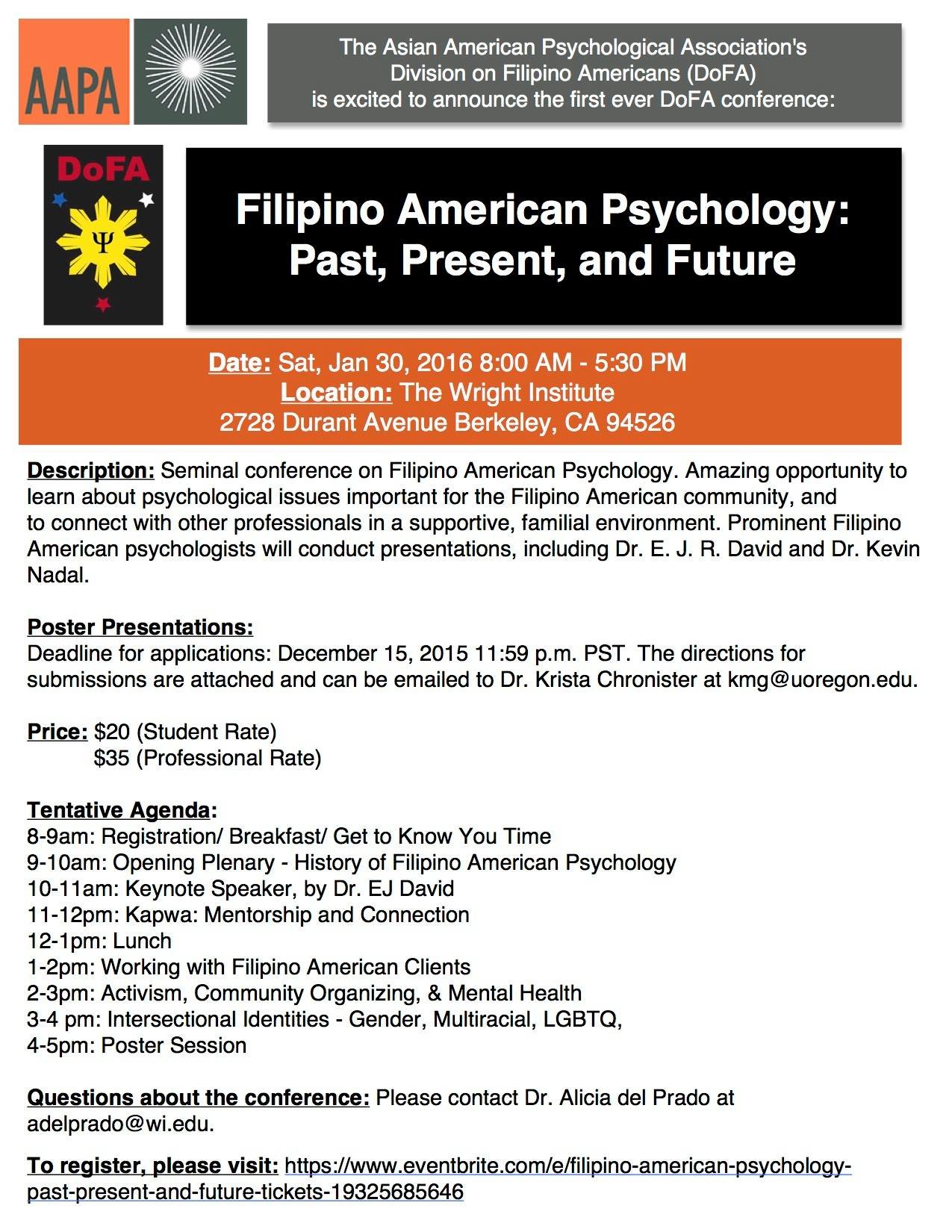Asian American Journal of Psychology | March 2016 Issue
Feature Article & Table of Contents
FEATURE ARTICLE:
“Asian Indian International Students’ Trajectories of Depression, Acculturation, and Enculturation”
Dhara T. Meghani and Elizabeth A. Harvey

Dr. Dhara Meghani
AAPA would like to congratulate the authors of “Asian Indian International Students’ Trajectories of Depression, Acculturation, and Enculturation,” which has been chosen as the Feature Article of the March 2016 issue. Below is a brief biography the lead author, Dr. Dhara T. Meghani, and some reflections on the study and its inspiration. We hope that the readers of AAJP will find this Feature and the rest of the issue’s articles to be informative and of benefit to their work. The Feature Article may be downloaded for free here, and the March 2016 issue’s Table of Contents is at the end of this post.
Brief Biography of Dr. Dhara T. Meghani
Dhara T. Meghani, Ph.D. is an Assistant Professor in the Clinical Psychology Psy.D. program within the School of Nursing and Health Professions at the University of San Francisco. Dr. Meghani’s research focuses on mental health outcomes of individuals and families following major life events including immigration, trauma, and new parenthood. Dr. Meghani is also interested in the training and education of health professionals and in incorporating trauma-informed care across integrated health settings to improve service delivery and patient experiences. Dr. Meghani was an AAPA Leadership Fellow during 2013-14 and is also a past columnist for South Asian Parent magazine, in which she blogged about the intersection of parenting and child development research and cultural practices relevant to families in the South Asian diaspora.
Dr. Meghani holds a B.A in Psychology (Anthropology minor) from the University of California Berkeley and received her M.S. and Ph.D. in Clinical Psychology from the University of Massachusetts Amherst. She completed her clinical internship and post-doctoral fellowship at the University of California San Francisco/San Francisco General Hospital Child Trauma Research Program and is trained in Child-Parent Psychotherapy, an intervention for children under six and their parents who have been exposed to interpersonal trauma.
Reflections from the Lead Author
Much of the inspiration for this research study came from watching my parents – themselves immigrants – regularly welcome Indian international graduate students from the local university to our home for meals and to celebrate Indian holidays while I was growing up. It was apparent how appreciative the students were to have a little taste of home away from home (many of them still keep in touch), and hearing their varied impressions intrigued me and left me wanting to know more about how they felt about living in such a different culture thousands of miles away. One of the biggest challenges of conducting this study involved collecting longitudinal data beyond the University walls by implementing internet-based surveys, which were still relatively new when we launched the study. This methodology certainly had advantages, such as enabling us to sample from over 30 institutions; at the same time, recruiting and maintaining participants who had not met us in person over six time points was tricky – even in this age, there is little substitute for face-to-face interaction! At the end of the study, several students commented on how much they enjoyed completing the surveys as this was a rare opportunity to reflect on their personal well-being and track their growth during the academic year. This was a benefit of participation that we had not necessarily anticipated, and it was exciting to see students spontaneously disclose feelings of pride and accomplishment in ‘surviving’ their first year of graduate school and initial months in the United States. I continue to be ever grateful to the students who participated and allowed us to accompany them during this momentous and transformative period in their lives. (Dr. Dhara T. Meghani, 2016)
AAJP VOLUME 7, ISSUE 1 | TABLE OF CONTENTS
[Articles available for download through PsycNET]
[Feature Article] Asian Indian International Students’ Trajectories of Depression, Acculturation, and Enculturation
Dhara T. Meghani and Elizabeth A. Harvey
Emotional Self-Control, Interpersonal Shame, and Racism as Predictors of Help-Seeking Attitudes Among Asian Americans: An Application of the Intrapersonal–Interpersonal-Sociocultural Framework
Paul Youngbin Kim, Dana L. Kendall, and Elizabeth S. Chang
The Relationship of Colonial Mentality With Filipina American Experiences With Racism and Sexism
Lou Collette S. Felipe
Correlates of Asian American Emerging Adults’ Perceived Parent-Child Cultural Orientations: Testing a Bilinear and Bidimensional Model
Minkyeong Shin, Y. Joel Wong, and Cara S. Maffini
A Narrative-Linguistic Approach to Understanding Asian American Adolescents’ Discrimination Experiences
Lisa Kiang and Kalpa Bhattacharjee
Implications of Emotion Expressivity for Daily and Trait Interpersonal and Intrapersonal Functioning Across Ethnic Groups
William Tsai, Michael Sun, Shu-wen Wang, and Anna S. Lau
Intercultural Stressors of Chinese Immigrant Students: Voices of Chinese-American Mental Health Professionals
Chieh Li, Huijun Li, and Jianghe Niu
[International Section] Writing Can Heal: Effects of Self-Compassion Writing Among Hong Kong Chinese College Students
Celia C. Y. Wong and Winnie W. S. Mak


